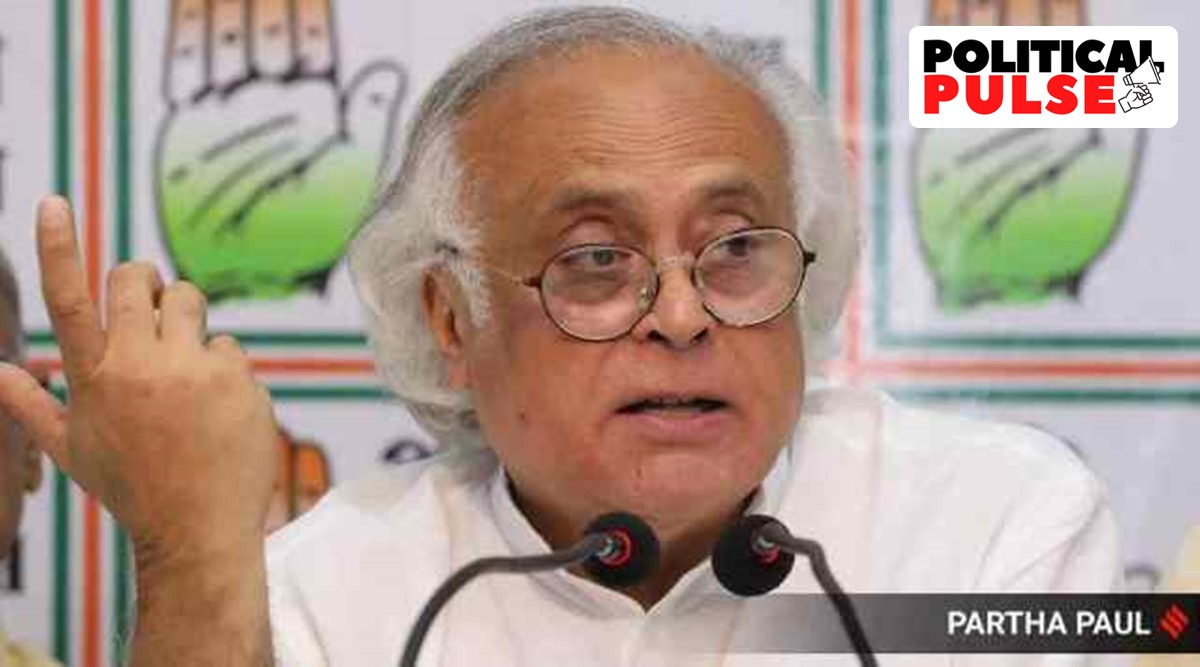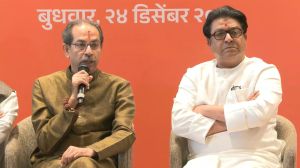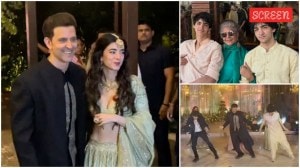The Law Commission of India’s move to seek the views of the public and religious organisations on the Uniform Civil Code (UCC) can potentially bring divergent views in the Opposition unity camp out in the open, at a time when the latter are gearing up to hold a conclave in Patna to firm up plans to forge an anti-BJP front for the 2024 Lok Sabha elections.
While most of the Opposition parties are opposed to the idea of a UCC, parties like the Shiv Sena (UBT) and the Aam Aadmi Party (AAP) have in the past spoken in its favour. For the Sena, which had a long association with the BJP before the two parted ways in 2019, UCC is like an article of faith.

The Congress today led the charge against the 22nd Law Commission’s move, reminding it that the 21st Law Commission had said that it is “neither necessary nor desirable at this stage” to have a Uniform Civil Code”, and telling the Commission that it should remember that the interests of the nation are distinct from the political ambitions of the BJP.
“While diversity of Indian culture can and should be celebrated, specific groups, or weaker sections of the society, must not be dis-privileged in the process. Resolution of this conflict does not mean abolition of difference. This Commission has therefore dealt with laws that are discriminatory, rather than providing a uniform civil code which is neither necessary nor desirable at this stage. Most countries are now moving towards recognition of difference, and the mere existence of difference does not imply discrimination, but is indicative of a robust democracy,” the Law Commission’s Consultation Paper on Reform of Family Law, submitted in August 2018, had said.
The Congress specifically pointed out that the Law Commission’s statement on Wednesday makes it clear that it was being done on a reference sent by the Ministry of Law and Justice. “It is strange that the Law Commission is seeking a fresh reference, when in its press release it acknowledges that its predecessor, the 21st Law Commission, had published a consultation paper on the subject in August 2018. No reasons are given for why the subject is being revisited, except for vague references to the relevance and importance of the subject, and also to various court orders,” said Congress communication head Jairam Ramesh.
The real reason, he said, was that the 21st Law Commission, after carrying out a detailed and comprehensive review of the subject, had observed that it is “neither necessary nor desirable at this stage” to have a UCC.
“The Law Commission has produced an enviable body of work over the decades, on numerous issues of national importance. It should be mindful of that legacy and remember that the interests of the nation are distinct from the political ambitions of the BJP,” the senior Congress leader added.
Story continues below this ad
While the JD(U), RJD, the Left and the Trinamool Congress slammed the Government, the Sena (UBT) and the AAP remained silent.
The undivided Sena was a strong votary of the UCC. “They are speaking about laws banning beef in the country. They should first announce that this country is a Hindu Rashtra and impose uniform civil code,” Uddhav Thackeray had famously said at the party’s annual Dussehra rally at Mumbai’s Shivaji Park in 2015. The party has reiterated its position on the UCC several times since then.
When contacted, senior Sena leader Sanjay Raut told The Indian Express “Let there be a debate. We have always supported the Uniform Civil Code. If a debate is happening on it…in the country… let there be a debate…we will see what the opinion of the people is.”
The AAP too had not opposed the UCC in the past. In fact, it has egged the BJP government to implement it across the country. “It is clearly written in Article 44 of the Constitution that it is the responsibility of the government to make Uniform Civil Code. So the Government should make UCC. What did the BJP do? They formed a committee before the Uttarakhand Assembly elections… after winning the elections… The committee went back home. Now, three days before the Gujarat elections… they have set up a committee… this committee will also go home after the elections… Why are they not implementing UCC in Madhya Pradesh, Uttar Pradesh… if their intentions are for implementation of the UCC… then why are they not implementing it in the entire country… are they waiting for the Lok Sabha elections,” AAP chief and Delhi Chief Minister Arvind Kejriwal had said, while campaigning for the Gujarat Assembly elections last year.
Story continues below this ad
The TMC panned the government. “When you cannot deliver on jobs. When you cannot control price rise. When you rip the social fabric. When you fail to keep every promise made. All you can do, in your desperation, is to fan the flame with your deeply divisive politics before 2024. #Uniform_Civil_Code,” TMC leader and Rajya Sabha MP Derek O’Brien posted on Twitter.
RJD leader and Rajya Sabha MP Manoj Kumar Jha said the Law Commission, before asking the opinion of others, “…should be asked to read the 21st Law Commission’s detailed report, where it had come to the conclusion that it [UCC] was neither desirable nor necessary at this stage.”
“It emanates from a context. The world over, there is a journey from uniformity to diversity, whereas, in this case… you are actually trying to use this as an instrument for your dog-whistle politics, which we have been seeing in different other formats. What worries me is that the lack of understanding of diversity makes you go for all these kinds of options, which are actually neither desirable nor necessary,” Jha said.
He added, “I would also urge the Law Commission to go back to the Constituent Assembly debates and look at the fact that after such a rich debate… why it was halted… the reason is that this is not an opportune time… there is a mistrust among people and communities… have we decimated all that mistrust and everything… No! Rather, it has deepened. The worrisome part of this is that it is being looked at from a Hindu-Muslim angle. What do you do with the diversity among Hindus themselves… about tribal cultures and customs… What are you going to do? Just one brush? In order to have uniformity, you kill that very spirit.”
Story continues below this ad
JD(U) leader K C Tyagi said the previous Law Commission had elicited the views of all in 2017. “What happened to those opinions… Now that elections are near… they are using this issue to polarise and communalise. All the political parties had given their opinions,” he said.
In 2017, JD(U) chief Nitish Kumar had, in a letter to the then Law Commission chairperson B S Chauhan, said that the UCC must be seen as a measure of reform for people’s welfare, not as a “political instrumentality” to be hurriedly imposed against their wishes and without consultations.
“The JD(U) is of the firm view that democracy is based on the foundational principle of constructive dialogue. Where the UCC is concerned, such a dialogue, based on broad-based consultations with all religious denominations, is particularly necessary, given the multi-cultural, multi-religious nature of our society. In the same spirit of dialogue, it is essential that the UCC is first put to debate in Parliament as well as legislative Assemblies of states, and other forums of civil society,” Kumar had written.
CPI general secretary D Raja said, “There is no consensus on this issue. Secondly, it is perceived as targeting one particular community. We accept and support gender equality, gender empowerment and rights of women, but not how it is to be done. Moreover, why is the Law Commission doing this exercise… Parliament is there. Parliament is supreme in our democracy. Whatever has to be discussed, should be discussed there.”
Story continues below this ad
The CPI(M)’s position has been firm right from the beginning. Even in 2017, it had refused to participate in the consultation exercise carried out by the Law Commission, arguing that it smacks of a politically motivated agenda.

































